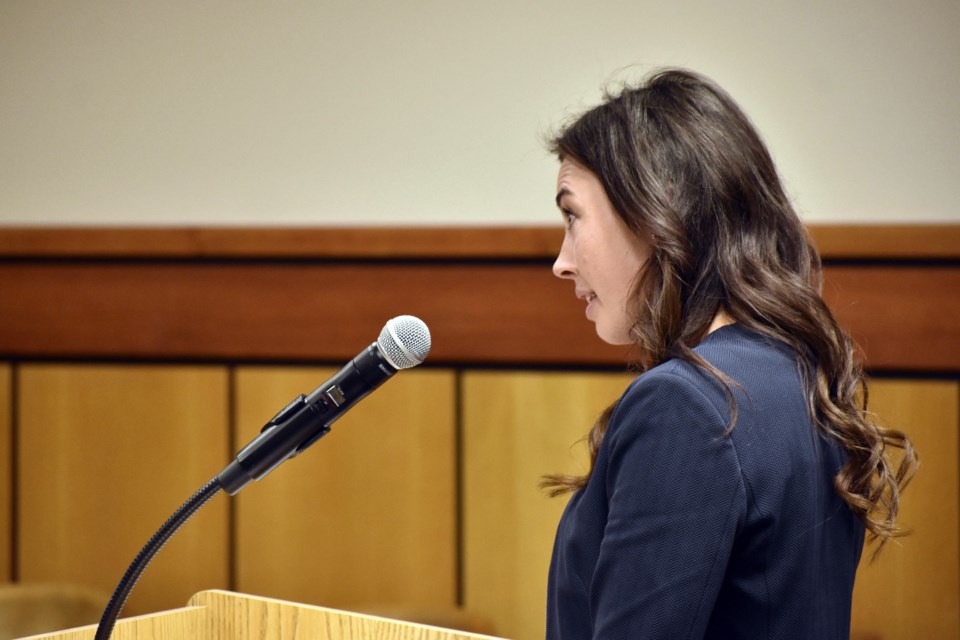BILLINGS, Mont. (AP) — Just hours after a Montana judge blocked health officials from enforcing a state rule that would prevent transgender people from changing the gender on their birth certificate, the Republican-run state on Thursday said it would defy the order.
District Court Judge Michael Moses chided attorneys for the state during a hearing in Billings for circumventing his April order that temporarily blocked a 2021 Montana law that made it harder to change birth certificates.
Moses said there was no question that state officials violated his earlier order by creating the new rule. Moses said his order reinstates a 2017 Department of Public Health and Human Services rule that allowed people to update the gender on their birth certificate by filing an affidavit with the department.
However, the state said it would disregard the ruling.
“The Department thoroughly evaluated the judge’s vague April 2022 decision and crafted our final rule to be consistent with the decision. It’s unfortunate that the judge’s ruling today does not square with his vague April decision," said Charlie Brereton, director of the Department of Public Health and Human Services.
Brereton said the agency was keeping the rule it issued last week in place and an agency spokesperson said the department is waiting to see the judge's written order before considering its next steps.
ACLU attorney Malita Picasso expressed dismay with the agency’s stance and said officials should immediately start processing requests for birth certificate changes.
“It’s shocking that after this morning’s hearing the department would allege there was any lack of clarity in the court’s ruling from the bench,” Picasso said. “It was very clear that Judge Moses expressly required a reversion to the 2017 policy, and anything short of that is a continued flagrant violation of the court’s order."
Such open defiance of judge's order is very unusual from a government agency, said Carl Tobias, a former University of Montana Law School professor now at the University of Richmond. When officials disagree with a ruling, the typical response is to appeal to a higher court, he said.
“Appeal is what you contemplate — not that you can nullify a judge's orders. Otherwise, people just wouldn't obey the law,” Tobias said. "The system can't work that way.”'
The move could leave state officials open to contempt of court charges, which in some cases can lead to jail time for offenders, Tobias said. He added that the attorneys representing the state were likely aware of the potential consequences but were “caught in the middle” between a recalcitrant agency and the judge.
The legal dispute comes as conservative lawmakers in numerous states have sought to restrict transgender rights, including with bans on transgender girls competing in girls school sports.
The Montana law said people had to have a “surgical procedure” before they could change the sex listed on their birth certificate, something Moses found to be unconstitutional because it did not specify what type of procedure was required.
Gov. Greg Gianforte’s administration then created a new rule that blocked changes to birth certificates entirely, unless there was a clerical error.
Moses said during Thursday morning’s hearing that his April ruling had been “clear as a bell” and compared the state’s subsequent actions to a person twice convicted of assault who tries to change their name following a third accusation to avoid a harsher punishment.
“Isn’t that exactly what happened here?” Moses asked. “I’m a bit offended the department thinks they can do anything they want.”
One of the plaintiffs in the case, Amelia Marquez, said she was disgusted by the state's response.
“We have people that think that they're above the law and don't have to listen to the judiciary branch of our government,” she said.
After learning the state planned to defy the court order, Shawn Reagor with the Montana Human Rights Network said the organization “will not stand by while the Gianforte administration blatantly disregards rulings from the courts to continue a vindictive attack on the trans community.”
Only Tennessee, Oklahoma and West Virginia have sweeping prohibitions against birth certificate changes similar to what Montana has pursued, advocates for transgender rights say. Bans in Idaho and Ohio were struck down in 2020.
A Republican lawmaker who voted in favor of the 2021 law suggested Moses was biased in favor of the plaintiffs in the case. Moses was appointed to the court by former Gov. Steve Bullock, a Democrat.
“Like clockwork, Judge Moses issued yet another predetermined order in favor of liberal plaintiffs without thoroughly engaging with the legal issues at hand,” Sen. Greg Hertz of Polson said in a statement.
The ACLU of Montana had asked Moses to clarify his order after the state health department enacted its new temporary rule effectively banning birth certificate changes a month after Moses handed down his temporary injunction in the case. That rule was made permanent last week.
The state argued the injunction did not prevent the health department from making rules, but Moses said under case law the injunction reinstated the 2017 rules and any other changes are on hold while the case is decided.
State officials denied that the new rule preventing birth certificate changes was adopted in bad faith. Montana Assistant Solicitor Kathleen Smithgall said the state came up with the new rule to fill a gap in regulations after the 2021 law was blocked.
“Judge Moses mischaracterized the words of his own order, the parties’ motives, and the state of the law," said Kyler Nerison, a spokesperson for Attorney General Austin Knudsen.
Matthew Brown And Amy Beth Hanson, The Associated Press



